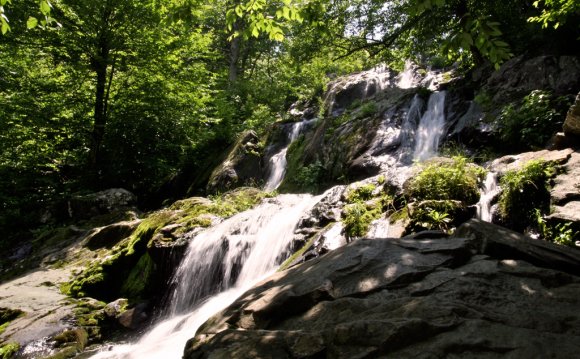
 No matter what cause or reasons for the tiny Ice Age, scientists and historians agree on its results: unusually wet springs that caused floods, hot and dry summers that generated droughts, and specifically cold winters. On January 30, 1607, a huge flooding, possibly due to a tsunami, hit southwestern England, killing as many as 3, 000 individuals. One contemporary account defines a scene in Somerset County for which a child "was found swimming in a Cradle, some mile or two fro' ye place where it absolutely was knowen becoming kept, so was preserved, for Cradle was not of wicker as our are here [in London], but of strong thicke bordes, closely jointed collectively, and therefore conserved the babies life."
No matter what cause or reasons for the tiny Ice Age, scientists and historians agree on its results: unusually wet springs that caused floods, hot and dry summers that generated droughts, and specifically cold winters. On January 30, 1607, a huge flooding, possibly due to a tsunami, hit southwestern England, killing as many as 3, 000 individuals. One contemporary account defines a scene in Somerset County for which a child "was found swimming in a Cradle, some mile or two fro' ye place where it absolutely was knowen becoming kept, so was preserved, for Cradle was not of wicker as our are here [in London], but of strong thicke bordes, closely jointed collectively, and therefore conserved the babies life."
Droughts had been the higher issue in the us. When Jesuit missionaries, led by the Virginia Indian Don Luís de Velasco (Paquiquineo), appeared from the James River into the autumn of 1570, they encountered dry conditions and appetite. "We discover the land of Don Luis in quite another condition than expected, " one of many missionaries typed, "perhaps not because he had been responsible in the description of it, but because Our Lord has chastised it with six many years of famine and death, that has brought it about that discover notably less populace than usual."
When Thomas Hariot, John White, and the various other English colonists landed at Roanoke in 1585, they discovered a land in the middle of unprecedented drought. The years 1587, 1588, and 1589 had been the driest in the earlier 800. The "corn began to wither, " Hariot composed, additionally the Indians worried that drought had been in some way connected to the arrival regarding the English. Problems were just like bad as soon as the English sailed into the Chesapeake Bay in 1607. Tree-ring researches performed by scientists through the University of Arkansas, whom examined a bald cypress near Jamestown, unearthed that the colonists reached the start of a seven-year drought (1606–1612), the driest period in 770 many years.
 Cold weather condition, at the same time, ended up being a continuing danger. The Thames River froze over above London Bridge during the winter of 1607–1608, ultimately causing the very first for the alleged Frost Fairs, or festivals held from the river. The cool also caused hunger, as a contemporary writer—in an imaginary dialogue between a country man and a city man—reported: "the indegent ploughman's children sit sobbing and blowing their fingernails, " the united states guy says, "as lamentably as children and servants of your bad artificers. Hunger pinches their cheeks, since deeply to the skin as it doth into yours right here. You cry out right here, you will be undone for coals: and we also complain, we will die for want of lumber."
Cold weather condition, at the same time, ended up being a continuing danger. The Thames River froze over above London Bridge during the winter of 1607–1608, ultimately causing the very first for the alleged Frost Fairs, or festivals held from the river. The cool also caused hunger, as a contemporary writer—in an imaginary dialogue between a country man and a city man—reported: "the indegent ploughman's children sit sobbing and blowing their fingernails, " the united states guy says, "as lamentably as children and servants of your bad artificers. Hunger pinches their cheeks, since deeply to the skin as it doth into yours right here. You cry out right here, you will be undone for coals: and we also complain, we will die for want of lumber."
That cold temperatures in Virginia ended up being no less serious. John Smith wrote of a cold so unhappy that "a dogge would scarce have indured it." The colonist Francis Perkins, on March 28, 1608, described a cold "so intense this one evening the lake at our fort froze the majority of how across, although when this occurs it really is since wide once again since the one at London. The ice into the lake froze some seafood which, once we took them on after the ice had been melted, had been good."
YOU MIGHT ALSO LIKE












